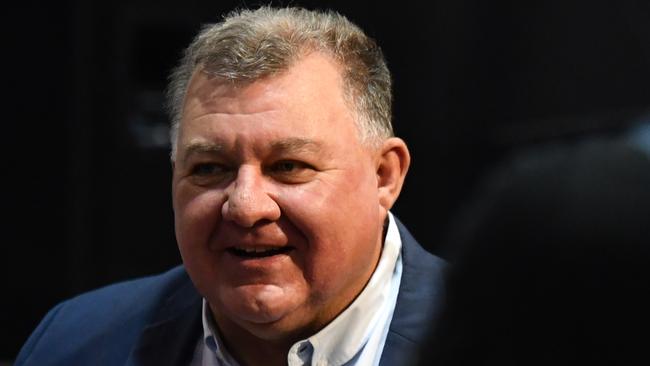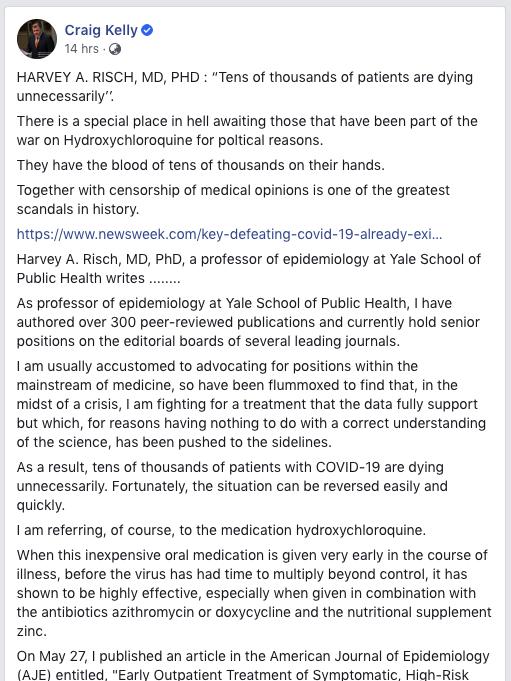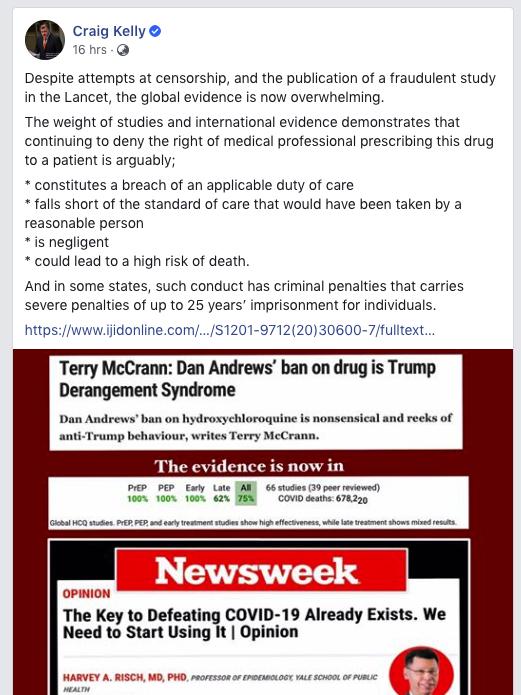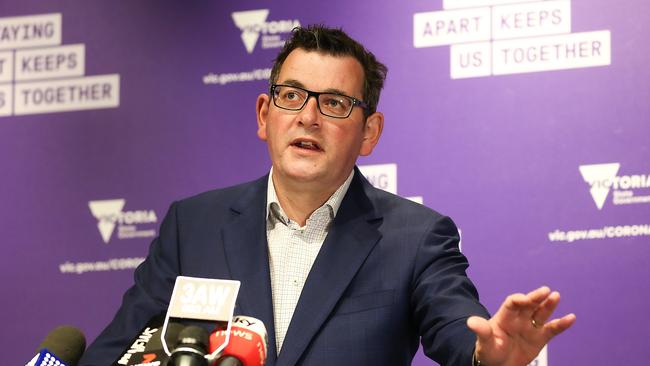Craig Kelly supports controversial COVID drug hydroxychloroquine
A Liberal MP has thrown his support behind a hotly debated drug as a potential COVID treatment, saying there’s a “special place in hell” for authorities who don’t authorise it. SEE THE POSTS
NSW
Don't miss out on the headlines from NSW. Followed categories will be added to My News.
- Victoria confirms 429 cases, 13 deaths as NSW baby infected
- Search underway after bones found at La Perouse beach
A Liberal MP has gone on a social media spree touting a controversial drug as a COVID treatment despite Australian authorities “strongly discouraging” it.
Member for Hughes Craig Kelly posted 18 times in two days about hotly debated drug hydroxychloroquine to his Facebook page.

MORE NEWS
$1500 disaster payment amid major Melbourne shutdown
Search underway after bones found at La Perouse beach
Exclusive men’s club hit as NSW cases soar
In one post the MP said those restricting the use of the drug as a COVID treatment, which includes Australia’s drug regulator the Therapeutic Goods Administration, have “the blood of tens of thousands on their hands”.
“There is a special place in hell awaiting those that have been part of the war on hydroxychloroquine for political reasons,” Mr Kelly said.
In a now deleted post, Mr Kelly suggested Victorian Premier Dan Andrews be charged with “workplace manslaughter” for not endorsing the drug as a treatment.


Hydroxychloroquine, which is usually prescribed for malaria and rheumatoid arthritis, has been restricted to “discourage inappropriate prescribing”.
The TGA is only allowing specialists and emergency doctors to prescribe the drug, which can have dangerous side effects including fatal heart disease and permanent retinal damage.
While President Donald Trump hailed the drug as a potential cure, revealing he was taking it to ward off the virus, the FDA withdrew emergency approval of the drug due to its side effects and limit evidence it has positive effects.
The World Health Organisation halted, and then restarted trials after a study published in The Lancet saying the drug was ineffective had to be retracted.
The study’s data could not be verified, and was swiftly denounced by scientists.
Mr Kelly believes the WHO “faked” the now-retracted study, and says that social media sites are “censoring” those who believe it works.

Recently Donald Trump Jr’s tweet in support of the drug as a cure for the virus was removed by Twitter for being “misleading”.
Mr Kelly told The Daily Telegraph he believes the ban on non-specialist doctors prescribing the drug should be overturned, and that is will “cost people their lives”.
“I’m no medical expert, but it concerns me greatly that non-medical people, social media sites, are censoring the medical experts,” Mr Kelly said.
The Australian Border Force has intercepted an increased number of illegal imports of hydroxychloroquine. When asked if he was concerned about people self medicating, Mr Kelly said overturning the ban would fix the problem.

“That’s my point, if we say medical professionals can’t prescribe it, we get this illegal importing,” Mr Kelly said.
“I’m not calling for the drug to be recommended as a treatment … it should be a decision between that medical professional and their patient,” he said.
The latest advice from the TGA is the drug should only be used in a clinical trial.
“Based on the latest international data, use of hydroxychloroquine to treat COVID-19 is strongly discouraged including in hospitalised patients, unless the patient is enrolled in a clinical trial which will have safety monitoring protocols and oversight by a Human Research Ethics Committee.”

Prime Minister Scott Morrison refused to comment on the beliefs of his backbencher, saying he “wouldn’t go into what people say on Facebook during a time like this”.
However, Mr Kelly was strongly rebuked by Chief Medical Officer Professor Paul Kelly on Monday.
“Hydroxychloroquine has been used for many, many years for various things, including for malaria prevention,” Professor Kelly said.
“I took it myself for many years when I worked in Africa, and it’s very safe for that particular way of using that drug, and other things currently involved in terms of arthritis and other matters.
But in terms of its use for this particular disease, the jury’s pretty much out - it doesn’t work.”
